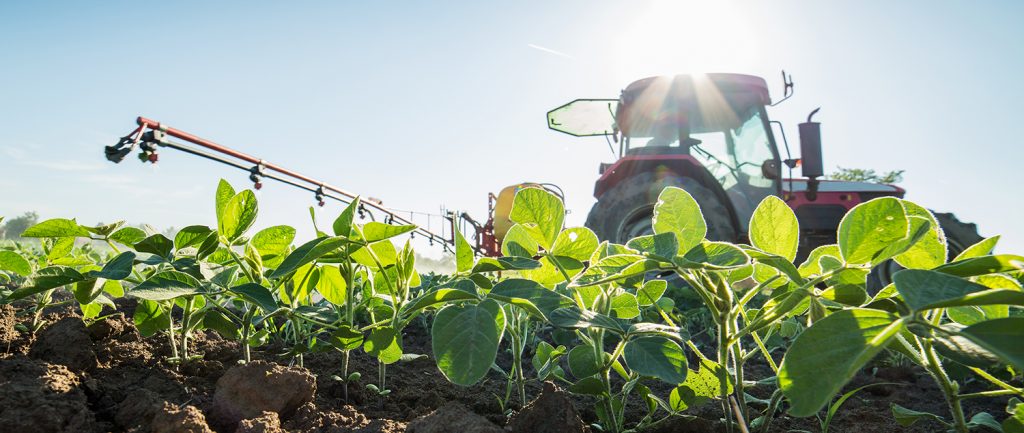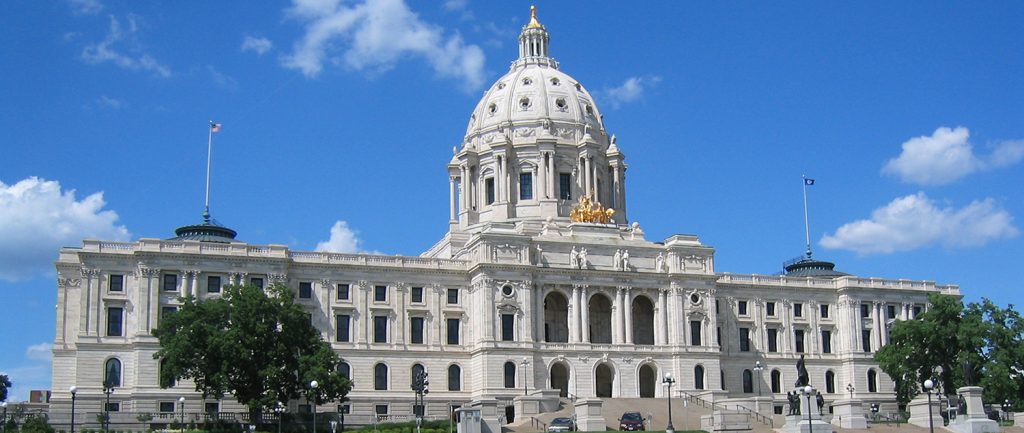After a controversial start in the first week, both the House and Senate got to work. The Senate Agriculture Committee passed a bill to make changes to last year’s controversial buffer law. Sen. Skoe, D-Minn., introduced SF 2505. Its companion HF3000 was introduced in the House by Rep. Torkelson, R-Minn. The House bill will be heard March 24.
The major changes to last year’s legislation are as follows:
• Eliminate jurisdiction of private ditches from the law;
• Changes the date by which buffer requirements are required from 2018 to 2025;
• Shift jurisdiction over buffers from state to local agencies;
• Make $100,000 aid payments to local units that assume jurisdiction.
Gov. Dayton opposes the date change. The Senate legislation now goes to Sen. John Marty’s Environment Committee.
House Agriculture Committee looks at MDA’s livestock report and biodiesel report
The House Agriculture Committee reviewed several reports from the Department of Agriculture last week, including a legislatively mandated report on the condition of livestock in Minnesota as compared to neighboring states.
The report had several deficiencies. The report did not acknowledge any nuisance lawsuits in Minnesota or neighboring states like Iowa. The review of nuisance lawsuits and their impact was a major item requested by the legislature when requesting the report. Many other portions of the report seemed inadequate. For instance, data was included that talked about numbers of processing facilities but contained no reference to numbers of livestock killed at those facilities or transportation costs associated with them.
The report does include a good cost comparison of permitting costs as compared to other states. It shows Minnesota has much higher costs and greater reporting requirements.
Committee Chair Rod Hamilton indicated that the committee would spend more time looking at this report.
An annual Biodiesel report by the Minnesota Department of Agriculture (MDA) was also reviewed by the committee. The 17-page report covered many aspects, including biodiesel production, price and statutory changes. In addressing the Minnesota mandates, the report pointed out that Minnesota’s existing production capacity can provide 91.4 percent of the existing B5/10 mandate and 54.5 percent of the required fuel for a B5/20 mandate.
Governor Releases Supplemental budget
Last week, Gov. Dayton unveiled a scaled back budget proposal in which he abandoned his effort to bring state paid preschool to Minnesota. The budget was reduced because state budget forecasts reduced surplus by $300 million since November. Points included in the budget plan include:
• $100 million for high speed internet in rural Minnesota;
• $100 million to address racial inequities;
• $117 million for tax cuts for educational expenses and working families;
• Provides $202 million for a financial cushion for the state.
No funds were included for farm tax relief.
More details were uncovered this week as finance committees reviewed details. The Senate Environment Finance Committee reviewed the DNR budget March 21 and the House Environment Finance Committee reviewed the MPCA and DNR supplemental budget requests March 22.
One detail important to farmers is that a full time FTE is requested for the MPCA to work on rule making to increase water fees in order to cover 100 percent of agency costs. The fees would increase on NPDES and SDS permits. Presently, fee charges account for about 7 percent of agency costs.
Transportation and Tax Conference Committees trying again
Nine months after lawmakers failed to strike a deal on a long-term transportation funding plan, the House and Senate Conference Committee tasked with the job met for the first time during the 2016 session.The committee walked through their differing versions of HF4. The exercise was intended to re-start the process of reaching a compromise.
Last spring a “lights on” bill was passed, but House and Senate leaders failed to find a compromise on the larger issues, namely finding a way to fund a long-term boost in state transportation spending.
Agreement was hard to find, even on what exactly should see an increase in funding. The Senate plan called for more dollars for metro area mass transit projects while the House plan focused its proposals on raising funds for road and bridge projects.
The conference committees for both transportation and taxes are reconstituted from last year.
No one knows if there will be a better outcome this year because unlike other areas of government, neither a tax or transportation bill is necessary to continue tax collections for the state or ongoing operations of the agencies.
The House and Senate Tax Committees are hearing new proposals from committees outside of the previously mentioned conference committee, but Rep. Greg Davids, R-Minn., House Tax chair, has publicly stated that he does not foresee a second tax bill forthcoming. Several bills affecting farm property taxes have been heard this past week. They have included bills with changes in homestead credit formulas and beginning farmer tax incentives. At this point, it is unclear how they might logistically move forward, however, they will likely be in the mix somewhere.
Renewable Energy Standard for Motor Oil to be heard
HF 3125, a bill to require a renewable energy standard for lubricants was heard on March 23 in the House Agriculture Policy Committee. The bill is being advanced at the request of a California company that has capability to create the oil. The bill prohibits the sale of lubricating oil without bio-based content.
MSGA Focus
The Minnesota Soybean Growers Association (MSGA) lobbyists are working on the issues discussed in today’s Rotunda Ramblings. The following are positions by MSGA that focus on several of the issues discussed in todays’ Rotunda Ramblings. MSGA members should continue dialog with their legislators about these issues.
Minnesota Soybean Growers Association 2016 Legislative Priorities
1. Agriculture Land Taxes
Minnesota soybean farmers are concerned about agriculture land tax laws that would impact their ability to operate in a cost effective manner.
• MSGA supports agriculture land tax policies that are fair and do not place undue burden on farmland.
• MSGA supports reductions to agriculture property tax.
• MSGA support legislative initiatives that would give agriculture land owners a property tax credit of up to 50% on bonded indebtedness for school construction projects.
2. Water and Natural Resources
Minnesota soybean farmers recognize the importance of water for agricultural production and understand the importance of our state’s natural resources.
• MSGA supports decisions that impact how agricultural land is used that are based on sound science and factual information.
• MSGA supports legislative initiatives that makes changes to the 2015 buffer law by excluding private ditches and that compensates farmers for lost agriculture land put into buffer strips by local water authorities.
• MSGA supports voluntary conservation practices and voluntary state and federal programs that are being used by Minnesota soybean farmers today.
3. Transportation/Infrastructure
Minnesota soybean farmers require adequate infrastructure to get their products from the farm to the market in Minnesota and around the world. Minnesota soybean farmers use a variety of transportation modes to the deliver their products.
• MSGA support legislation to improve Minnesota’s roads so that they can accommodate more grain moving by trucks.
• MSGA support improvements to the Port of Duluth to expand the ability to move grain and soybean products to East Coast and International Markets.
• MSGA supports creative solutions to reduce shipping costs to be more competitive.
4. Biodiesel
Minnesota soybean farmers support Biodiesel, America’s advanced biofuels. Biodiesel in Minnesota has been a boost for the state’s economy and environment.
• MSGA supports existing law that established Minnesota’s biodiesel content at 10% (B-10) blend during summer months.
• MSGA supports existing law that will increase the content to 20% (B20) during the summer months starting in 2018.
• MSGA supports higher blends for better air quality.
5. Biotechnology
Biotechnology allows farmers to use fewer chemicals, fewer crop inputs and produce more on less land.
• MSGA supports Biotechnology as its safety has been proven for decades.
• MSGA supports Biotechnology as it helps protect the environment by allowing farmers to produce crops while using less fertilizer, fewer herbicides and insecticides and with less water usage.
6. Renewable Lubricant Standard
Minnesota soybean farmers supports a renewable lubricant motor oil through a policy that will help market a biodegradable bio-based motor oil that can replace a portion of the petroleum base stocks currently in use.
• MSGA supports the environmental benefits of a renewable lubricant motor oil as the oil is renewable, ultimately biodegradable, non-toxic and recyclable.
• MSGA supports usage of plant-based motor oils as it would create jobs in rural agricultural communities and manufacturing jobs in larger cities.




